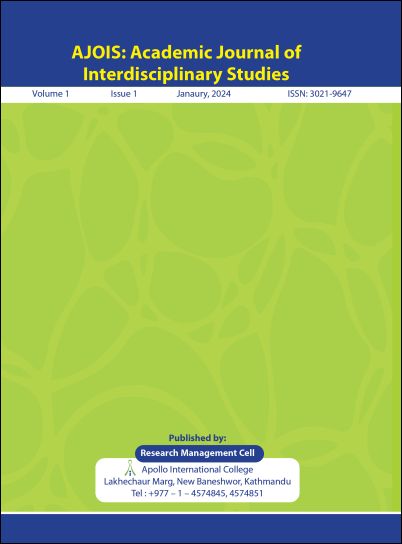Ethos of Revisionist History in Krishna Sen Ichchhuk’s Poems
DOI:
https://doi.org/10.3126/ajois.v1i1.62946Keywords:
Revisionist, official history, fiction, discursivity, counter-historyAbstract
This study attempts to explore and analyze how Ichchhuk revisits the official history of Nepal and rewrites it from the perspective of marginalized group in his poems “Haata Lagyo Sunya” (Achieved Zero in Hand), “Machha-Machha Bhyaguto” (Fish-Fish Frog) and “Euta Gauleko Diary” (One Villager’s Diary). It also projects how the poet blurs the boundary between fact and fiction in the light of new-historicist perspective that gives equal value to both history and literature. This research seeks to find out how the poet brings forth the history from the below and problematizes the history from the top model that has been characterized with the deceptive discourse of freedom, equality, democracy and human rights. The paper displays what contributing factors are responsible to dismantle the mainstream history and write history of the people. It also depicts the poet’s appeal to people with optimistic feeling and revolutionary spirit to create unity among the people of the margin and fight back against the powerful rulers to bring new sunshine in human life being liberated from the oppressive clutch of the feudal and fascist leaders who always deceive the people with illusive fish history. This article demonstrates Ichchhuk’s courage, will power and life force to valorize the common people’s history and to defy the official history. To justify how history should be rewritten, the researcher uses the new-historicist ideas of Michel Foucault, Stephen Greenblatt and Catherine Gallagher. This research work shows how poets like Ichchhuk raise consciousness in marginalized people of the world and raise voice in order to establish an egalitarian human society dismantling the official history and writing the inclusive history of the people.




